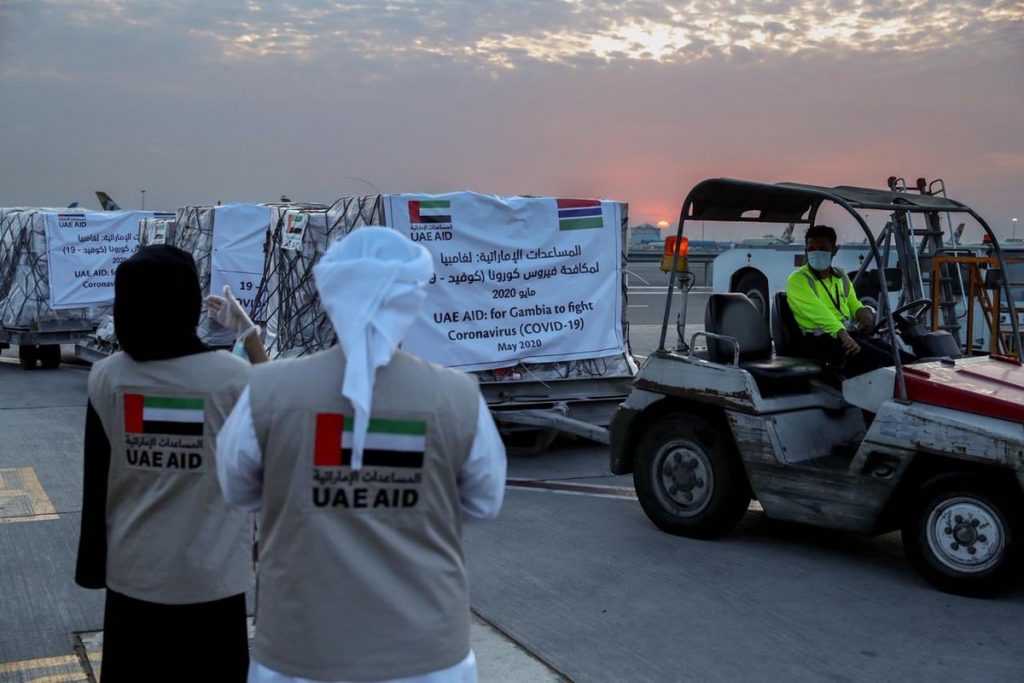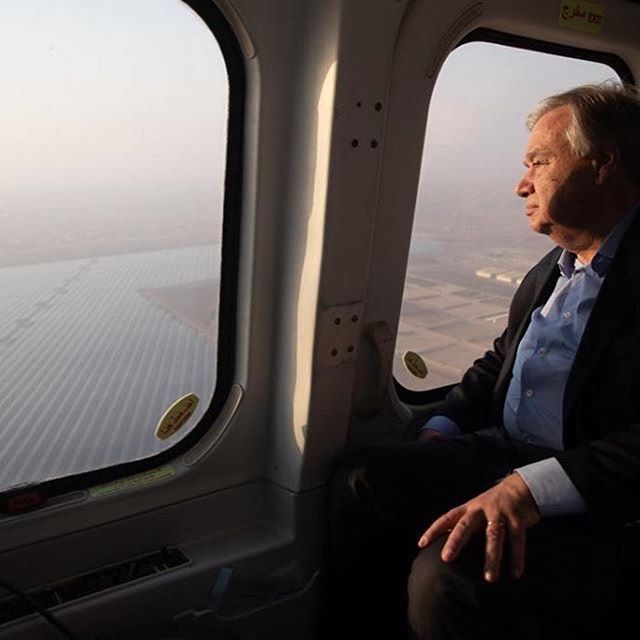From providing development assistance to fostering peace to helping the world transition to renewable energy, the UAE is committed to improving life and helping steward a brighter global future.
Sustainable Development Goals
We are working domestically and around the world with the United Nations and its partners to achieve the 2030 Sustainable Development Goals (SDGs). Domestically, our National Committee on SDGs, established in January 2017, mapped SDG targets to the UAE’s National Agenda, embedding SDG targets in the strategic plans of federal entities. The UAE has also reoriented its foreign aid program to align with the SDGs, focusing on those people and regions where aid and assistance is most needed. Expo 2020 in Dubai is driving momentum toward meeting the SDGs by making sustainability a major theme.


Foreign Assistance
For the last five years, the UAE has been the world’s most generous donor relative to gross national income and has provided assistance to more than 175 countries.
At the United Nations, we are working with Member States to address the longstanding shortfall in financing for humanitarian support. We also host the International Humanitarian City in Dubai, a critical logistics and supply center for nine UN agencies and dozens of organizations providing development and humanitarian assistance abroad.
The UAE helps fund UN programs including UNICEF, UNDP, the Office of the UN High Commissioner for Refugees, and the UN Relief and Works Agency for Palestine Refugees (UNRWA), and works through other multilateral organizations to advance additional humanitarian goals.
Climate Security and Resiliency
The reality of the climate crisis makes it imperative that we invest in future sources of energy on a transformative scale and build global resiliency to address the changes already affecting the world.
We were one of the first oil-producing countries to ratify the Kyoto Protocol to the UN Convention on Climate Change in 2005 and we quickly ratified the Paris Agreement of 2015. We are seeking new energy alternatives and in October of 2021, announced the UAE Net Zero by 2050 Strategic Initiative, a national drive to achieve net-zero emissions by 2050, making the Emirates the first Middle East and North Africa (MENA) nation to do so.
We are also helping others along the path to a more sustainable energy future. Abu Dhabi is home to the International Renewable Energy Agency, the first international organization solely focused on encouraging adoption of renewable energy. Our $15 billion Masdar initiative is developing and commercializing future energy sources and technologies, as well as investing in innovative ways to reduce water usage and improve energy efficiency. Masdar is the Middle East’s largest exporter of renewable energy, ensuring that our research and capacity to deploy renewable energy at scale contributes to shared climate resiliency – especially with nations most vulnerable to climate change, such as Small Island Developing States.
The UAE was one of the first oil-producing countries to ratify the Kyoto Protocol to the UN Convention on Climate Change in 2005 and quickly ratified the Paris Agreement of 2015. We continue to support the low-carbon transition, and, in October of 2021, we announced the UAE Net Zero by 2050 Strategic Initiative, the first Middle East and North Africa (MENA) nation to introduce a national drive to achieve net-zero emissions by 2050. The UAE will also serve as president of COP28 in 2023, with a commitment to practical solutions and inclusiveness.
In line with our commitment to supporting climate change mitigation and adaptation efforts, the UAE has co-launched an ambitious initiative with the United States to accelerate research, development, and demonstration on climate-smart agriculture. The Agriculture Innovation Mission (AIM) for Climate has a growing coalition of 40 countries and more than 100 NGO partners and announced $4 billion of new innovation funding at COP26 in 2021.

